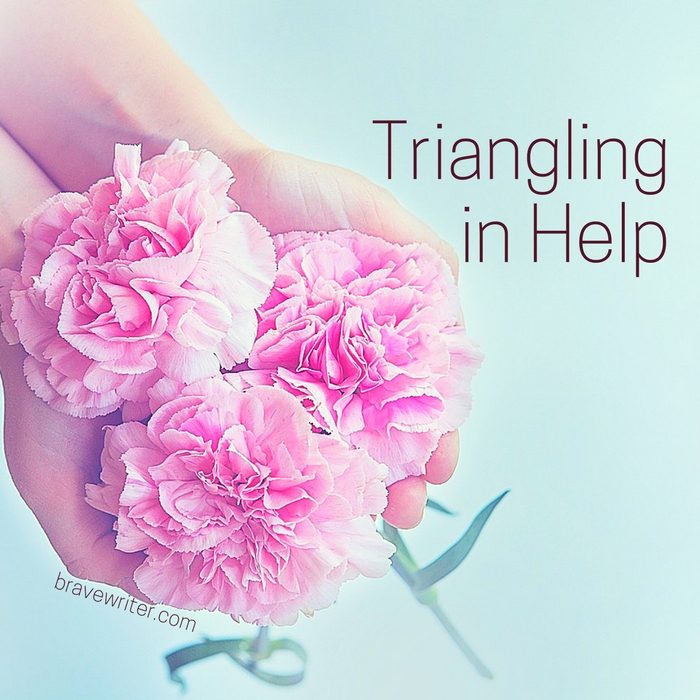
If you were to fill out the questionnaire from the previous blog entry, you may come up with a profile like this (this is theoretical – your answers will vary):
What kind of person am I?
I like structure. I make “to do” lists, I organize my files by alphabet and I empty my email in-box each day. I prefer to have tangible evidence that I’ve gotten a lot done.
What are the learning styles of my kids
(look at each one individually)?
The oldest likes lots of interaction and enjoys working hard at things he loves. The second child prefers to know exactly what to do each day so he can check it off. The third child is artistic and will commit to any project that includes markers.
Recall a time when you felt
that all of you were happy.
We had a great day when I planned an afternoon for learning how to draw. We had all the materials out, we sat outside, we had interesting objects to draw and I had clear instructions to present. Each one was engaged and the end products were really great to look at.
Recall a time when you all felt miserable.
We had been doing workbooks every day for a month without any field trips or change of pace. By the end of the month, two of my kids said they hated school. I noticed that they got sloppier in their work too.
Begin with the end in mind.
Ask yourself:
How would I know I had had
a successful year of home education?
I would know the year had been successful if I had a handful (5-7) of completed writing assignments and I could tell that my kids enjoyed at least producing one of them. I’m looking for them to improve in both attitude and competence.
What does your partner/spouse expect?
My husband is a school teacher and sometimes I feel like he measures our progress by how many minutes we spent at the kitchen table. That makes me feel nervous about taking the day off to explore something in depth or to go to a museum.
Recall a favorite learning moment of your own.
I loved learning how to quilt. I got books, bought a sewing machine, took a class at the local store and made my first quilt. It felt really good to focus on one thing and to get help. I liked working at my own pace and figuring out how to apply the ideas I learned in class. I liked having a teacher.
How frequently do you check in with your children?
I haven’t done that for awhile. In fact, I don’t know if I ever have. I realize that I expect them to be on board without my ever talking to them about my ideas, asking their input on how they’d like the schedule to look or asking them what they’d like to learn. I’m also wondering if I could ask them what their favorite learning experiences are and when they felt happiest and most miserable. That seems like a good idea.
The overall thrust of this profile doesn’t address classical education or Charlotte Mason, unit studies or historically oriented lessons. What it does is help you to notice your habits, your tendencies and your preferences as they balance against your children’s. When you’re designing your year, you want to take everyone into account (even a spouse who has his/her own ideas of what success looks like). Take each person seriously. Recognize that sometimes you will work outside your comfort zone, accommodating a child’s learning style that is in conflict with yours. Likewise, help your kids to understand that sometimes they are meeting your needs to reassure yourself that learning is happening, that you are making progress toward a goal you see and feel (even though they may not value it the way you do). You need to balance these so that everyone is aware of what is happening.
Remember: the more you share your needs with your kids, the better chance they have of helping you to reach your goals too. You can say something like this: “I’ve noticed that I like to have some physical samples of your work by year’s end that let me see these things (list them: punctuation, nice handwriting, completed math chapter tests, a couple of writing samples that went through the revision process). I realize that you love to have free-flowing days with time to do art, play the piano and get on the computer. Let’s see how we can get all of these done. How about this….?”
Then make a plan with your kids. Remind them when you get off-track or need to adjust the plan. Check in with them to find out if it’s working. The point is, get everyone on the same page acknowledging what they need/want while at the same time sharing what you need/want. The reason so many learning systems fail is that they either major on what the parent wants (often overriding a child’s natural learning style, leading to resentment and tedium) or they focus on accommodating a child’s learning style (meanwhile the mom feels like she’s constantly revising her expectations… until she panics and cracks!). Every homeschool must take each person into account to be successful.
An educational philosophy is about the idea that learning transcends specific methods and tactics. It’s the belief that learning takes place at all times, but that the most effective ways to deliver a body of information will vary child to child, parent to parent, family to family. Knowing how your family functions well will help you sort through the mountain of information about homeschooling you encounter in groups, online and in books.





















